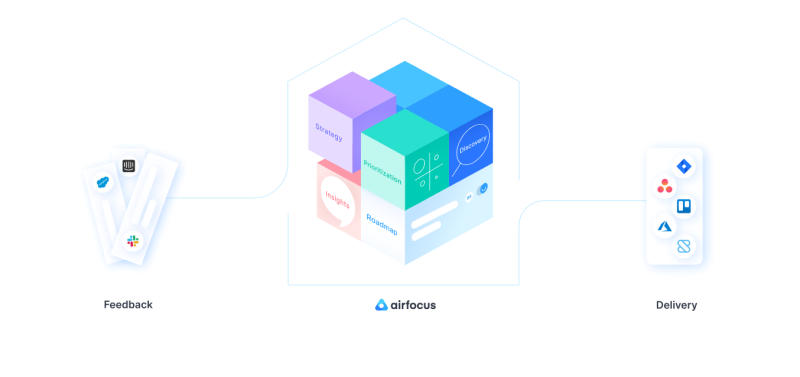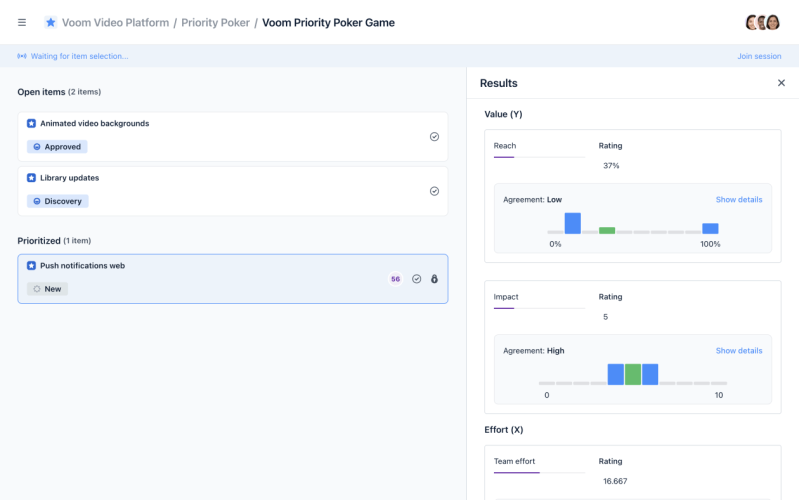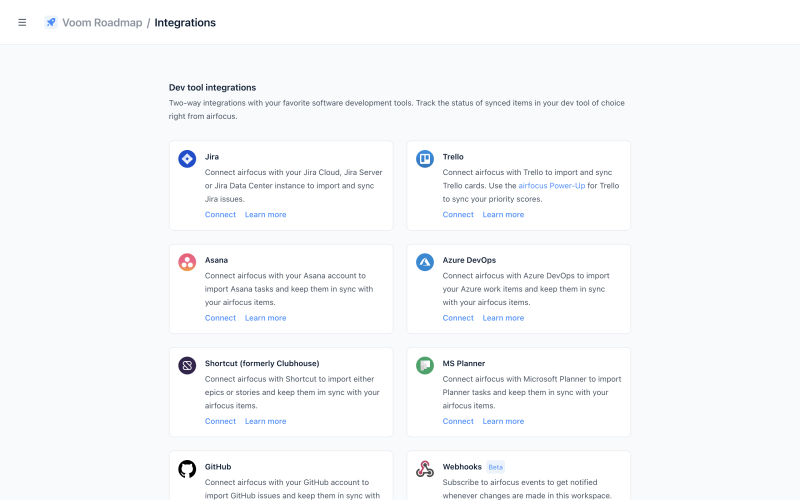Future-Proofing Your Product Management Processes: Embracing Modularity

Product management as a practice continues to evolve with continued innovations in technology.
As companies are constantly preparing and planning for the future, product teams must do the same. They must future-proof their processes and product management software to continue building world-class products.
Of the many areas that product teams evaluate when sourcing product management software, one key trait that must be considered is modularity, as it enables numerous benefits and opportunities for product teams and the products they manage.
can support your team.
Book a demo
What is “Modularity”?
Modularity is the ability to bring separate parts that work alone into one unified component.
The practice of product management involves many inputs and outputs. Especially as product managers work with multiple stakeholders.
Great product management tools have key capabilities that enable product teams to get their job done well in the way that best fits them. These include the ability to gather and prioritize feedback, craft roadmaps, integrations, reports, streamline communication, and more.
Some product teams have chosen to rely on one separate tool for each of these key items.
One issue with this is that some of these tools do not scale as your products and teams grow.
Also, with multiple tools, there is manual effort involved in gathering all of the information required from each one to make decisions.

Why embrace modularity
Here are some of the key benefits that come from embracing modularity.
Modularity enables flexibility
With modular product management software, you can modify and use it to suit your specific needs.
A product tool built for roadmaps can only be used to build roadmaps.
But what about capturing customer feedback? And how will you prioritize the feedback among your team members, and then action it and track progress?
Add these key components with modular product management software; the capabilities are literally endless.
Modularity enables scalability
Startups do not plan on remaining small forever.
Your company will grow, your product(s) will grow, and your team(s) will grow.
As products grow, so do business needs. And as teams grow, so do the lines of communication and required processes.
The set of tools used with a small team and product will likely not be the same ones used with a larger team and product.
Unless they are modular. Modular tools support scalability.
Modular product management software grows as your product and team grow.
Your team can continue to use the same tool(s) that you have come to rely on.
Future-proof your product management processes, and plan for the long term.
Modularity enables adaptability
Adding to the above, with modular product management software you can quickly adapt to market changes.
Whether these are changes in the tools your company uses (integrations), team members and processes (workflows), customer demands (capture feedback), and priorities (roadmaps).
With a non-modular tool, you are stuck using it specifically the way it was built, and if additional capabilities are required then you must source a separate tool.
Avoid the hassle by embracing modularity.

Challenges in traditional product management processes
Why future-proof your product management process? Does traditional product management not work?
Traditional product management tools and processes may get the job done, however, if you want to practice the new way of doing product management then a modular approach is better.
Below are a few challenges product teams face with traditional product management software that can be solved with modularity.
Digital workflows
A digital workflow is a series of tasks performed with technology to get things done.
Each tool you use has its own workflow. With non-modular product management software, you must follow its defined workflow and can not deviate.
As your processes change, your needs change, and the tools you work with change (which they will) then your workflow must change as well.
Modular product management software allows you to modify your digital workflows, ultimately helping you and your team get work done in your way.
Slow time to market
Some product teams follow traditional project management processes, which at times leads to a slow time to market.
With the time required for product discovery, completing designs, developing the product, and end-to-end testing, it takes a long while for new products to be released.
This is detrimental in a fast and hyper-competitive environment.
The new way of product management includes adopting agile practices.
It is easier to follow agile processes with modular product management software, especially Scrum or Kanban to ship new releases at the earliest.
Gather customer feedback early, prioritize, and share updates with customers as updates are released.
Lock of customization
With one tool you have to stick to the way that tool does things.
An example of this is crafting roadmaps. Having the ability to customize your roadmaps, determine the prioritization method, and even integrate with other tools for additional tracking and capabilities once the work gets started is beneficial.
Modular product management software allows you to work your way with customization options.
Incorporating customer feedback
With a modular approach and following agile principles you can quickly adapt to customer feedback.
With a modular product management tool like airfocus, you can add components as needed. Such as leveraging Insights, a feedback management tool to understand user needs and solve the right problems.
This increases the chances of success for your product as it will be built with constant customer needs in mind, rather than waiting for customer feedback post-launch.

Implementing Modular Product Management Software
If you’re ready to embrace modularity for your product management practice check out airfocus, one of the leading product management tools, and the only modular one for modern product teams.
Easily configure it to meet your teams’ specific needs with its many building blocks as you manage your products from vision to delivery.

airfocus comes with many capabilities including:
Custom and clear roadmaps to communicate product and business plans
Customer feedback management to gather feedback and uncover insights
Custom portals to engage directly with users and customers
Modularity to customize airfocus to work your way
Numerous integrations for a two-way sync with relied on software development tools
Artificial intelligence to quickly generate ideas and support your product process
… and more
Here are just some of the key benefits that you will get out of the box:
Streamlined collaboration
It takes a team to build great products.
With airfocus, you can collaborate directly with your team to make decisions and stay up to date on progress.
For example, streamline collaboration with customers by capturing feedback with Insights.
Streamline decision-making on which feedback to action with priority poker.
Keep team members up to date and plan for product launches and other key initiatives with roadmap templates, which include the ability to assign tasks, and comments, and communicate progress.
And when it comes to collaborating further with your customer base, you can choose what information to share with specific roadmap views.

Enhance workflow efficiency
Get things done faster and with more precision.
Many product management tools force you to work their way. Not airfocus.
And not all product teams work the same way, some prioritize initiatives on different hierarchy levels for example.
Use airfocus to create your own custom workflow for each level, link hierarchies together, and keep your entire team aligned.
And if you’re just starting out and are not sure what workflow to use, their team has got you covered with their full product management workflow template that allows you to manage your product management process from end to end.

This template includes three connected workspaces:
Strategic roadmap
Opportunity pipeline
Feedback & Insights
Adapt to changing requirements
airfocus Insights is the most flexible way to centralize feedback and generate insights for product discovery.
Product teams can not only collect but also organize feedback from many sources and teams into one place.
This is helpful in uncovering insights to inform your product strategy.
Once feedback is collected and prioritized, then use one of airfocus’ many agile boards to communicate changing requirements with your team and integrations to see the project through to delivery.

Conclusion
When leveraging a modular product management tool you are future-proofing your product management process.
With modular product management software you can go to market faster, customize your approach, gain flexibility and scalability, and ultimately future-proof your product management practices.
If you’re looking for the modular platform that’s built on the modern way of doing product management then check out airfocus.
can support your team.
Book a demo

Quadri Oshibotu
how airfocus can support your team.
Book a demo
Read also





Experience the new way of doing product management

Experience the new way of doing product management


